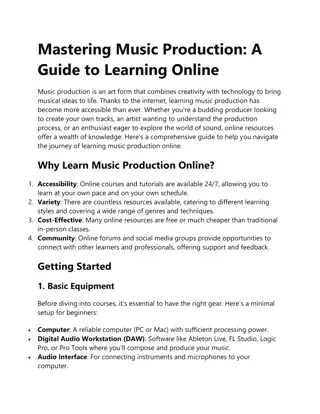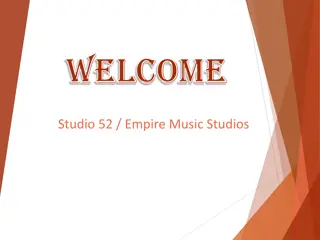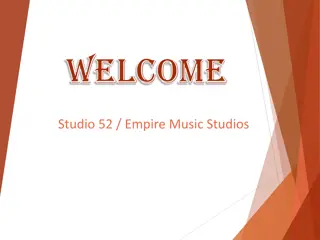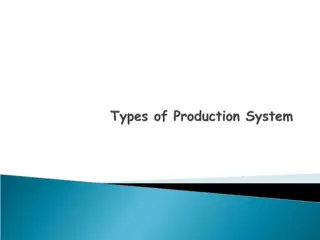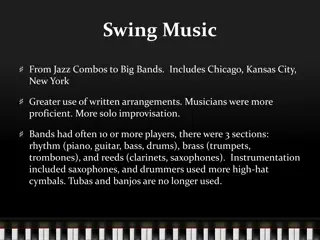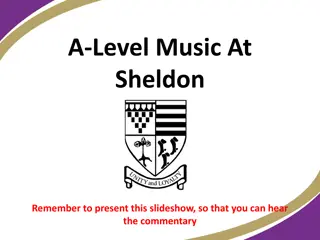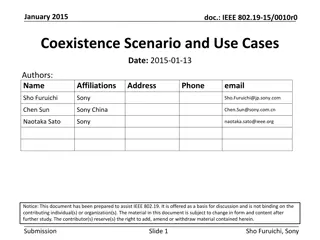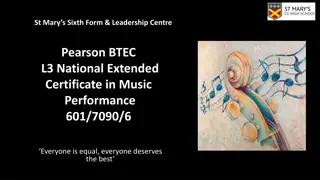Understanding Frequency Bands in Music Production
Explore the varying frequency bands in music production, from the powerful sub-bass below 80Hz to the sparkling treble above 5kHz. Learn how to balance different frequencies to create a dynamic and well-rounded mix. Discover the characteristics of each range and their impact on the overall sound quality.
Download Presentation

Please find below an Image/Link to download the presentation.
The content on the website is provided AS IS for your information and personal use only. It may not be sold, licensed, or shared on other websites without obtaining consent from the author. Download presentation by click this link. If you encounter any issues during the download, it is possible that the publisher has removed the file from their server.
E N D
Presentation Transcript
SUB Below 80Hz Can make a sound huge, powerful Accentuated in EDM, hip-hop, R&B, and reggae styles of music Represented by a subwoofer Too much sub can dominate a mix and mask other sounds
LOW 20Hz 200Hz Also known as bass Terms to describe this area: big, fat, beefy, huge, thumping Bass, kick, tuba, trombone, guitar, and piano can be found here Too much blankets a mix, not enough makes it sound weak
LOW-MID 200Hz 700Hz Vocals, guitar, strings, piano, and the body of the snare are found here Common to cut kick drum in this area
MID-MID 700Hz 2kHz Can add attack to an instrument Beginning of in your face zone Too much here can cause ear fatigue, not enough can make a mix appear dark and distant
HIGH-MID 2kHz 5kHz We hear best between 1.5kHz and 4kHz, in your face zone Often described with aggressive terms such as: slap, bite, crunch, edge, attack Punk music has plenty of high-mids
HIGH Above 5kHz Also known as treble Adds clarity and presence to a mix Terms associated with the sky often describe this area: airy, sunny, bright, light, angelic, clouds, feathery


